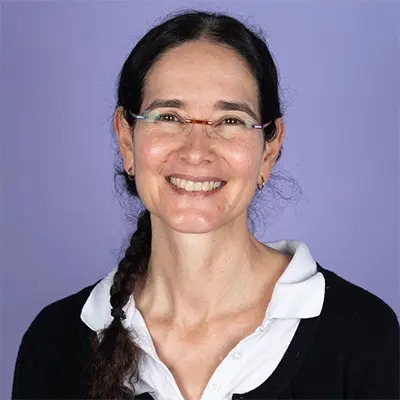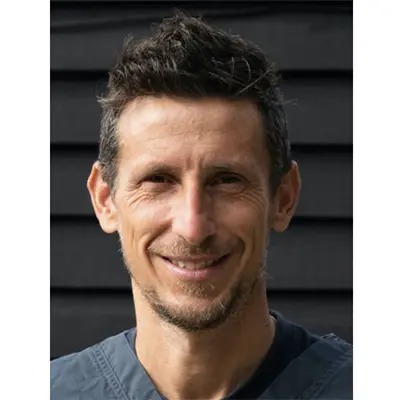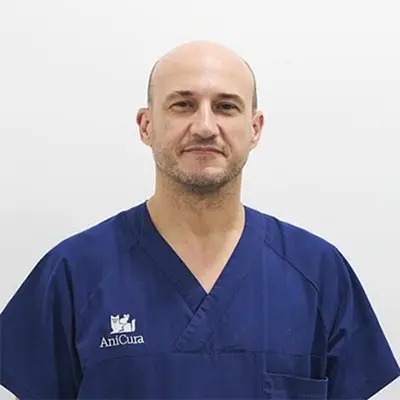Regional Anaesthesia for Procedures of the Head in Dogs & Cats
Species
Small Animal
Contact Hours
3 Hours - RACE Approved
Early Booking Deadline
Sun, 07 January, 2024
Registration Deadline
Fri, 26 January, 2024
Language
English
Discipline
Anaesthesia & Pain Management
Dentistry
Diagnostic Imaging
Ophthalmology
Surgery
Veterinary Partners
Global



Recorded on: 22nd February 2024
Panelists:
Yael Shilo-Benjamini DVM, DACVAA - Koret School Of Veterinary Medicine, Israel
Enzo Vettorato DVM, PhD, CertVA, DECVAA, FRCVS - University Of Florida, USA
Jaime Viscasillas DVM, MRVS, DECVAA - Anicura Velencia Sur Hospital Veterinario, Spain
Moderator:
Matt Read DVM, MVSc, DACVAA - MedVet Columbus, USA
PANEL DISCUSSION DESCRIPTION
Surgeries and other procedures of the head are commonly performed in small animal practice and the use of regional anesthesia has revolutionized our ability to provide perioperative analgesia for patients undergoing these painful procedures. The list of possible regional anesthetic techniques for the eye, the nose, the ear, and the oral structures that can be used has expanded over the last 10 years and there is often confusion over which technique to use and when to use it. Many veterinarians may find themselves asking “Is there a block that I could use for this procedure?”, “Is one approach clinically better than another?”, “Do the benefits outweigh the potential risks?”, and “Can I perform my blocks blindly or do I need special equipment to do them?”.
Join our panel of internationally renowned anesthesia and pain management specialists for an interactive discussion covering the ins and outs of delivering regional anesthesia for the head. We will discuss what information experts in the field use to develop new blocks, decide which techniques to perform on their patients, how to select which drug and dose to administer, what equipment to use, the pros and cons of the various techniques that are possible (e.g. blind, ultrasound-guided), and their personal preferences for different regions of the head. Differences in decision making between cats and dogs will be discussed, as will controversial aspects of the various blocks and what types of new techniques are currently in development or on the horizon.
Whether you are new to the idea of using regional anesthesia for procedures involving the head and simply want to improve your level of patient care or are a seasoned practitioner of nerve blocks and want to refine your approach by hearing what experts are doing and how they got there, you will find this session invaluable to your professional development.
Dr. Matt Read graduated with a DVM with distinction from the Western College of Veterinary Medicine in Canada in 1998. Following graduation, he completed a residency in veterinary anesthesiology and a Master of Veterinary Science. He became board-certified with the American College of Veterinary Anesthesia and Analgesia (ACVAA) in 2002. Following his residency, Matt taught at the University of Georgia for two years before returning to Canada and developing and supervising the anesthesia services in two large specialty hospitals in Toronto and Calgary between 2003 and 2010. Matt served on faculty at the University of Calgary as an tenured Associate Professor from 2010 to 2018 before moving to Ohio where he currently works for MedVet Columbus as an anesthesiologist and serves as Specialty Team Leader for MedVet, a family of emergency and specialty hospitals with more than 40 locations across the USA. Matt has delivered over 100 lectures and workshops around the world and is co-editor of the recently published second edition of the textbook, Small Animal Regional Anesthesia and Analgesia. He dreams of someday going into space and opening an ice cream shop in the Caribbean, not necessarily in that order.
More InfoDr. Yael Shilo-Benjamini graduated in 1999 from Koret School of Veterinary Medicine (KSVM), The Hebrew University of Jerusalem. In 2007, after working for several years in general practice and in the Anesthesia Department of KSVM Hospital, she took a resident position of Anesthesia and Pain Management at the University of California Davis. In 2010 she became a diplomate of the American College of Veterinary Anesthesia and Analgesia. Currently, she is a Senior Clinical Lecturer of Anesthesia and Analgesia at KSVM. She has a particular research interest in pain management, focusing on regional anesthetic techniques, and in providing safer anesthesia for wild species.
More InfoDr. Vettorato graduated from the Veterinary University of Padua (Italy) in 2003. After completing a PhD at the same University, he moved to the Royal (Dick) School of Veterinary Studies in Edinburgh (UK) in 2007, where he started a three years residency program in Veterinary Anaesthesia and Analgesia. In 2008, he gained the Royal College Veterinary Surgeons (RCVS) Certificate in Veterinary Anaesthesia, and he became European Veterinary Specialist in Anaesthesia and Analgesia (ECVAA) in 2010. In the same year, Dr. Vettorato moved to East Anglia (UK), where he worked as Consultant Anaesthetist at Dick White Referrals and Newmarket Equine Hospital until November 2022. In 2015, Dr. Vettorato became a RCVS Recognised Specialist in Veterinary Anaesthesia and in 2021 he was awarded with the RCVS Diploma of Fellowship by Meritorious Contributions to Clinical Practice. Dr. Vettorato is member of the Association of Veterinary Anaesthetists, author of several international publications and speaker at several courses about veterinary anaesthesia and analgesia. He has supervised and co-supervised several interns and residents that have successfully passed the ECVAA exam. His main interests are pain management, loco-regional anaesthesia, and evaluation of quality of recovery from general anaesthesia in horses. During his free time, Dr. Vettorato enjoys playing tennis, cycling, hiking with his dog and spending time with friends.
More InfoJaime Viscasillas has focused his professional career in the area of Veterinary Anesthesia. He is the Head of the Pain and Anesthesia unit service at Anicura Valencia Sur Veterinary Hospital.
His extensive experience in the specialty begins after his Bachelor's degree from the University of Zaragoza in 1998, where years later he obtained a position as associate lecturer in anesthesia at the Faculty of Veterinary Medicine of the same University.
In 2009 he began working in the Anesthesia Service of the prestigious Royal Veterinary College of London where he combined clinical and teaching practice while completing the Specialist Diploma from the European College of Veterinary Anaesthesia and Analgesia (DipECVAA).
Leacturer in Anesthesia at the CEU-Cardenal Herrera University of Valencia from 2019 to August 2022.
Extensive contribution to the specialty through numerous articles in high-impact international journals as well as chapters in several books on veterinary anesthesia. She has participated in communications at national and international conferences , postgraduate training, courses and has been part of scientific research related to the specialty.
His training and experience have led him to stay in International Hospitals for both veterinary medicine and human medicine.
Member of the Anesthesia accreditation committee by AVEPA, secretary of the Spanish Society of Veterinary Analgesia and Anesthesia (SEAAV) and reviewer of scientific articles from several national and international journals.
Training
- Graduated in Veterinary Medicine from the University of Zaragoza in 1998
- Master in Veterinary Anesthesia from the Complutense University of Madrid
- Accredited in AVEPA in Veterinary Anesthesia
- European Specialist Diploma from the European College of Veterinary Anaesthesia and Analgesia (DipECVAA)
Medical associations
- Member of the European College of Veterinary Anaesthesia and Analgesia (DipECVAA)
- Royal College of Veterinary Surgeons (RCVS)
- Member of the Association of Veterinary Anaesthesia (AVA)
- Member of the Spanish Society of Veterinary Analgesia and Anesthesia (SEAAV)
- AVEPA member
- Member of GAVA (Veterinary Anesthesia and Analgesia Working Group)
- Member of the Association of Veterinary Analgesia and Anesthesia of Argentina (AAAVRA)
Qualified Vet
Online Panel Discussion
USD 110.00
Intern/Resident/PhD (Requires proof of status)
Online Panel Discussion
USD 80.00
Vet Nurse/Vet Tech (Requires proof of status)
Online Panel Discussion
USD 80.00
Veterinary Student (Requires proof of status)
Online Panel Discussion
USD 20.00
If the options you are looking for are unavailable, please contact us.
No tax will be added unless you are a UK taxpayer
Choose currency at checkout


















